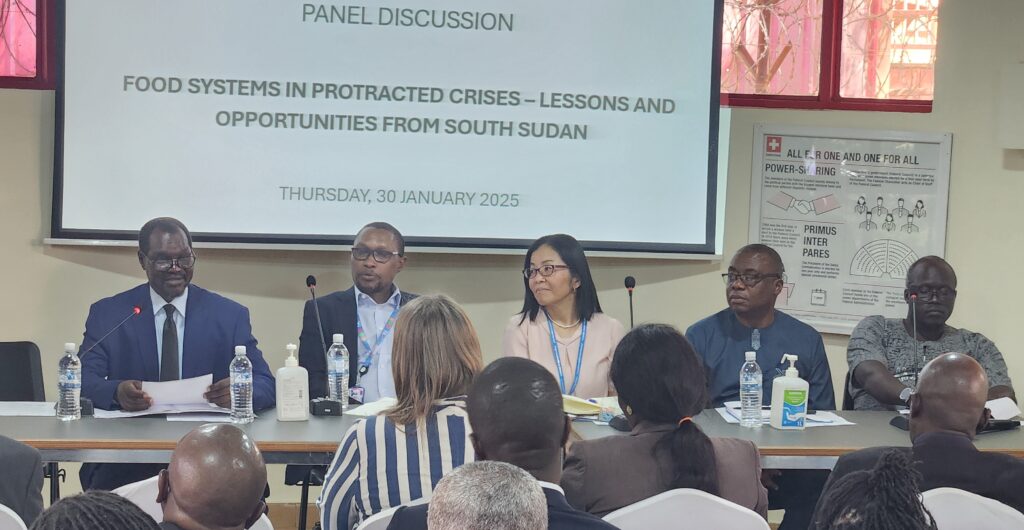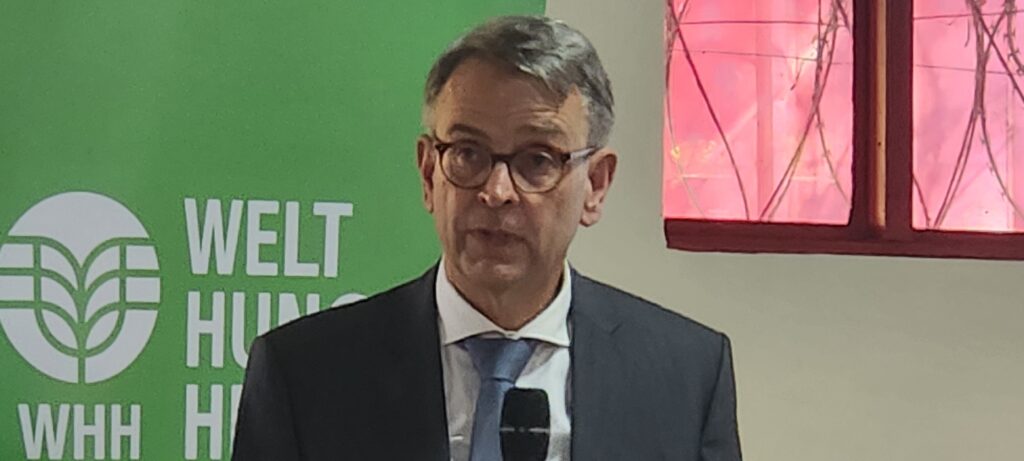Germany has challenged South Sudan to urgently overhaul its food system to combat hunger and malnutrition.
The Head of Cooperation at the German Embassy in South Sudan, Bjorn Niere, made the call during a panel discussion on the South Sudan’s Food System, organized by the Welt Hunger Hilfe and the Swiss Development Cooperation in Juba, on Monday.
“With more than 7 million people facing severe food insecurity, more than three million women and children being malnourished, it is quite clear that the food system here is dysfunctional and the lesson learnt is that it can’t continue as it is, it needs to change fundamentally,” Niere said.
“There is a transformation needed to change the way food is produced, processed, and marketed and finally what the people eat,” he added.
The German diplomat said changing the food system required a collective effort with the people at the center.
“When we talk about food system we often talk about the main sectors, crops, livestock, fisheries and the underlying land issue and the value chain, but this is not holistic enough. We need to have a look at the food system that puts people at the center and we need to respect their environment,” he stressed.

FAO Country Representative Meshack Malo, said South Sudanese could produce their own food, as each year there was an improvement in the production of cereals.
He said this year; the Aweil Rice Scheme alone harvested 2,000 bags despite the floods that ravaged the fields.
“This shows the great productivity that South Sudan can have. It will be recalled that last year, we lost almost 1,000 bags,” Malo said.
He said the improved yields showed the positive steps the country was taking towards producing its own food.
“In 2023, it seems that for the first time, the country was able to reach the 1 million mark of cereal production. That means that for the first time, we remained with a gap of about 400,000,” he said.
“This was produced from only 5% of the land, so we trust that if we can manage the floods, South Sudanese will progressively be able to eat what they produce and produce what they eat,” he said.




